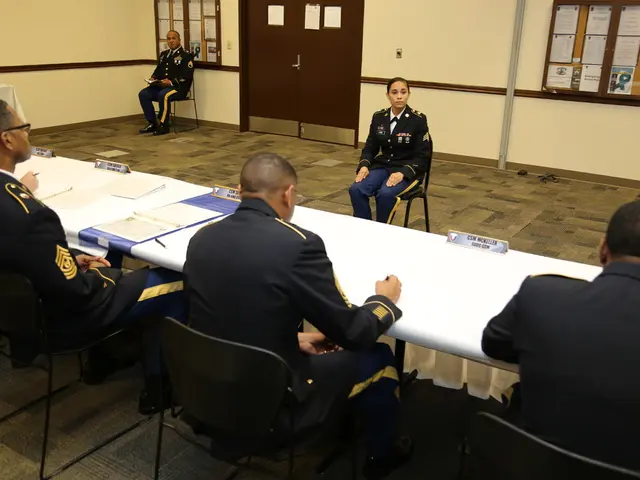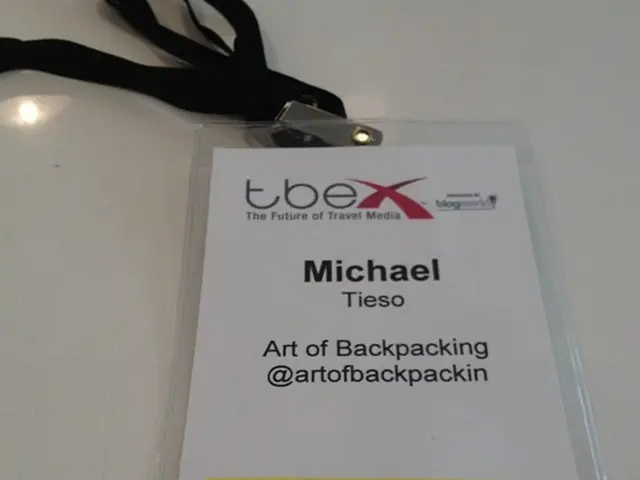If the ownership of the property isn't officially documented under the Open Source Initiative (OSI), questions about its legal status or rights of possession may arise.
Transforming Housing Management in Kazakhstan: The Rise of OSI and PTP
As of January 7, 2020, a wave of housing reform swept through Kazakhstan, bringing significant changes to the "Housing Relations" law. The liquation of KSK (housing management companies) is underway, and property owners of multi-apartment buildings have a year to set up their own management bodies. KSK can continue operating until July 1, 2022 without legal repercussions for non-compliance. However, experts caution about the potential risks of buildings becoming ownerless if a new management body isn’t established.
As Gulvira Abetova, head of the Center for OSI in Nur-Sultan, explains, apartment and non-residential property owners now have two choices: managing their condominium through a Union of Property Owners (OSI) or a Simple Partnership of a Multi-Apartment Residential Building (PTP). The transition process is almost free, with registration costing only 1 MCI (approximately $3).
"Every house is a part of the city system," Abetova clarified the risks. "If there’s a breakdown and your house is cut off from water, and it happens at the junction of the resource-supplying organization and your management body, who would you submit a claim to and work with if there’s no legal management body? The resource-supplying organization can only provide services to a legal entity, the management body."
The change of management can be initiated by an initiative group of at least 10% of a house's residents, the current management form (KSK or LLP), or a housing inspector. Moreover, one management body (OSI or PTP) can manage several houses connected by common communications.
The absence of a common management body for all residents in a house can lead to conflicts among owners. For example, residents of upper floors, whose roofs might be leaking, may not understand and sometimes refuse to participate in solving problems of residents of lower floors, who may complain about dampness from the basement.
During the registration of a new property management body, the Center for OSI in Nur-Sultan highlighted instances where the previous management company did not provide existing documentation, such as project and estimate documents, from the developer. In these cases, the initiators of OSI or PT are legally required to request these documents through CIO, e-government, or architectural and urban planning authorities.
New management bodies can request an account of past activities, but they cannot demand the transfer of their predecessors' accounts or debt. Disputes often arise regarding the engineering equipment of the house, such as the number of pumps. For example, OSI might tell KSK, "You accepted the house with three pumps, but according to the PSS, there should be four. Where is the fourth pump? Return it!" Such disputes are resolved through the court.
According to Abetova, when transitioning to OSI or PT, residents may incur additional costs if they have neglected the condition of engineering networks. Previously, residents simply paid without question, assuming that the developer would address any issues within the two-year warranty period.
Abetova advises property owners to clearly define the zones of responsibility between residents and municipal services. "Demanding plumbing services from the authorities is illegal," she emphasized. "The Akim is not a plumber."
The differences between OSI and PTP can be seen in Articles 43 "Association of Property Owners" and 43-1 "Joint Venture of an Apartment Building" of the Law "On Housing Relations." In the capital, according to the Center for OSI, over half of the multi-apartment buildings have established their management bodies, while around 30% have not managed to establish any form of management as of yet. Akimats are currently working with these buildings.
Sources:
- In Nur-Sultan, KSK and OSI will be fined for unremoved snow
- KSK rented out property because residents didn't know it belonged to them - Kazcentr ZhKH
- Transition from KSK to OSI: residents fear tariff increases
Further Reading:
- Understanding the Key Differences: OSI and PTP
- Organizational Structure
- OSI: A formal and often more structured management body, governed by specific legal requirements.
- PTP: A less formal option, focusing on shared responsibilities among property owners with fewer legal requirements.
- Legal Responsibilities
- OSI: Clear legal obligations, including maintaining common areas, collecting fees, and enforcing rules.
- PTP: The shared responsibilities among partners with less legal authority to enforce actions.
- Financial Management
- OSI: A more structured approach to managing finances, with budgeting and accounting for common expenses.
- PTP: Financial management might be less formal, with agreements made directly among partners.
- Consequences of Not Establishing a Management Body
- For Property Owners
- Disorganization in maintenance and services
- Challenges in decision-making and enforcement of rules
- Disputes among owners
- For Resource-Supplying Organizations
- Difficulty in negotiating contracts or receiving payments
- Interrupted services or legal issues when trying to collect payments from individual property owners.
- The liquation of KSK is ongoing in Kazakhstan, and property owners have a year to establish their own management bodies, otherwise, there is a risk of buildings becoming ownerless.
- Apartment and non-residential property owners in Kazakhstan can choose to manage their condominium through a Union of Property Owners (OSI) or a Simple Partnership of a Multi-Apartment Residential Building (PTP), with the transition process being almost free.
- The absence of a common management body for all residents in a house can lead to conflicts, as seen in instances where residents refuse to participate in solving problems of other residents due to miscommunication.
- During the registration of a new property management body, initiators may require existing documentation from the developer, and disputes regarding the engineering equipment of the house, such as the number of pumps, are resolved through the court.
- When transitioning to OSI or PT, residents may incur additional costs if they have neglected the condition of engineering networks, and Abetova advises property owners to clearly define the zones of responsibility between residents and municipal services.




